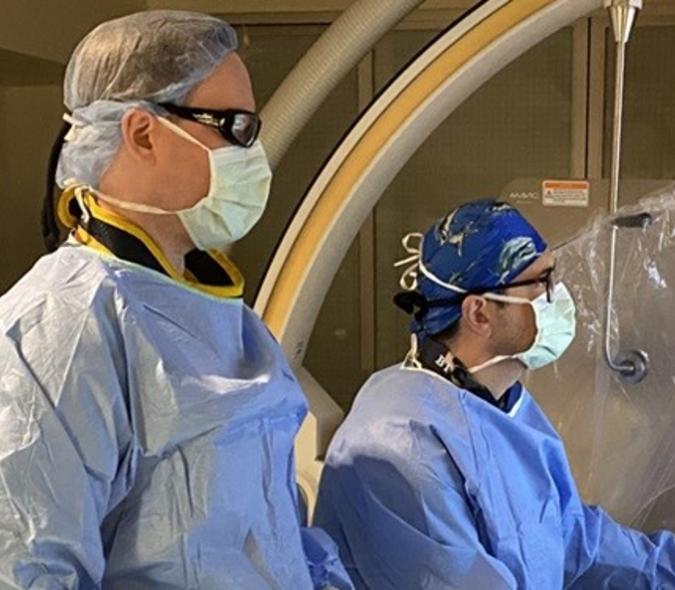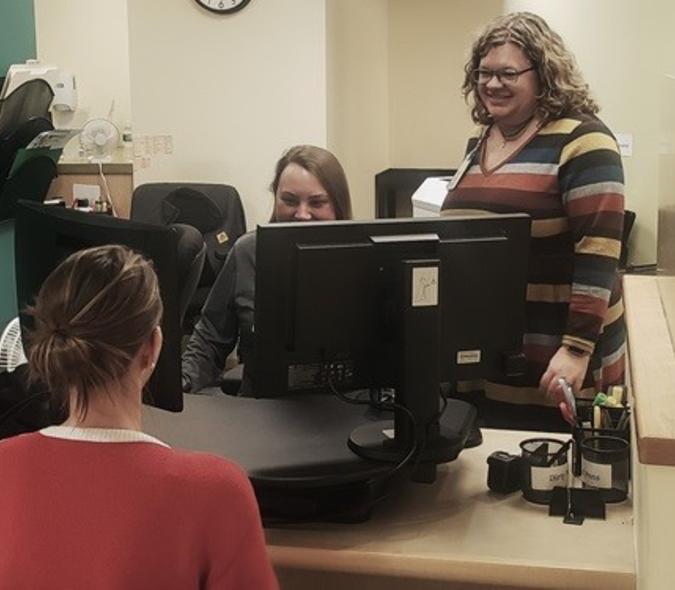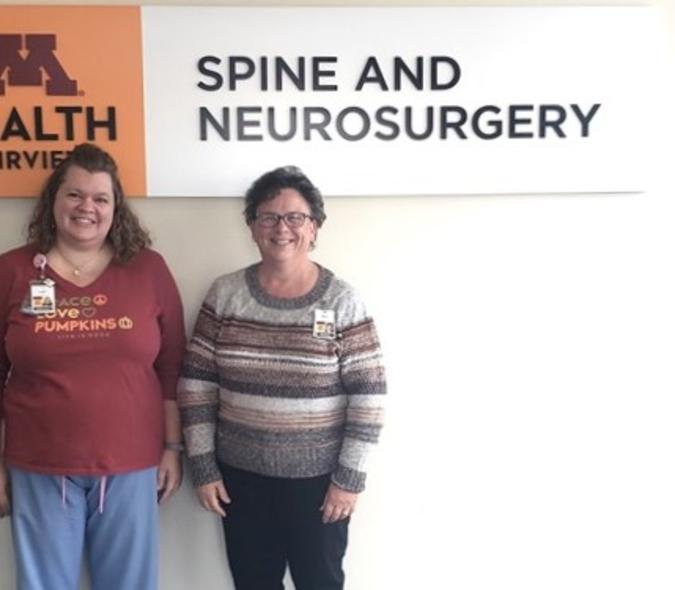New residents look forward to caring for patients, working with their colleagues and getting to know the Twin Cities
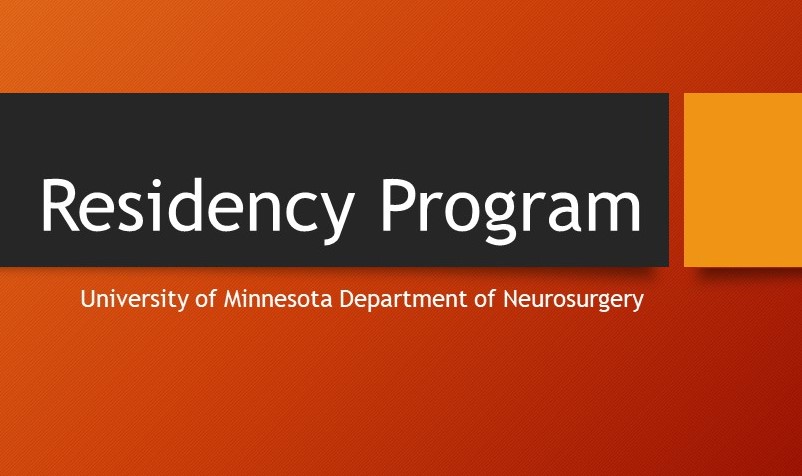
The week of June 11, 2018, the Neurosurgery Department welcomed two new residents: Samuel Jones, MD; and Maxwell Tran, MD. Both bring a strong work ethic, research experience, and enthusiasm about the opportunities that the Residency Program at the U has to offer. “We are thrilled to have them here as members of the department,” said Matthew Hunt, MD, FRCS, Director of the U of M’s Residency Program. “It is exciting to see the start of their neurosurgical careers.”
When asked about what attracted them to neurosurgery, the new residents gave similar answers. “When I entered medical school, I knew I wanted to do something hands-on, probably involving surgery,” explained Tran. “Eventually, I discovered that this part of surgical field – the brain, the nervous system – was the most fascinating to me. There is also a lot of opportunity for discovery and contributing to the field.”
“Operating is the one thing that distinguished neurosurgery from other specialties I was interested in and it was the one thing I couldn’t do without,” said Jones. “And I felt that the breadth and depth of Minnesota’s faculty will give me the ability to tailor my residency experience to getting lots of subspecialty exposure with the ability to focus later.”
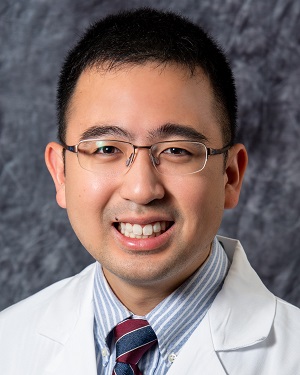
Maxwell Tran, MD
In addition to becoming the best neurosurgeons they can possibly be, both residents have lofty goals they want to pursue while in the program. “I want to make the most of the opportunities I have here, creating relationships with faculty mentors and the more senior residents,” Tran noted. “I want to work with them as much as I can to develop my technical and clinical skills.”
One of Jones’ goals relates to standardizing and optimizing processes. “I don’t want anyone to get an infection because I wasn’t sterile enough,” he said. “Surgical site infections are preventable in simple ways that aren’t always addressed. I want to help optimize the basic processes that go into neurosurgical care and healthcare more broadly.”
Pushing the boundaries of neurosurgical care even further is important to the new residents and the U’s program supports research – both in setting aside time for it and in providing strong mentors. “I have a good background in statistics and computer programming and hope to do large-scale clinical research while I’m here,” said Jones. “It’s motivating because it allows immediate application to patient care, which is the number one priority.”
Tran also looks forward to doing research. “There is a lot that we still need to learn about the pathologies associated with neurological conditions,” he said. “I want to contribute as much as I can to that effort.”
Neither is fooling themselves about the challenges they will face over the next seven years. “The sheer volume of material to learn and the rate at which new knowledge is appearing is going to be challenging to keep up with,” Tran said. “From another standpoint, it’s going to be challenging seeing patients with acute conditions; some of them we can make better, some we will not be able to. Those situations will be tough. I came into the field knowing that’s how it will be. I want to try to support patients through a difficult time, offering the best care possible.”
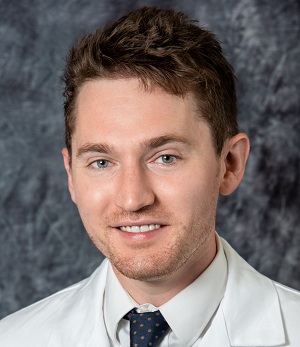
Samuel Jones, MD
Jones looks at the challenges from a more personal standpoint. “The only surgeon who doesn’t make mistakes is the one who doesn’t operate,” he said. “When mistakes happen, it’s not my role to sulk or ruminate, it’s my job to fix the problem. That will be the biggest, hardest thing in residency.”
While realizing that life will be challenging over the next seven years, it will also be an exciting time. “I’m already looking forward to going in tomorrow,” Jones said. “I’m eager to do my first tumor resection and other procedures. I’m also excited to spend more time with my co-intern, Max.” Tran wants to focus on forming meaningful relationships with his colleagues and mentors and enjoying life in a new city.
Perhaps even more important, they were both attracted to the collegial culture fostered at the university and a community with which they could easily connect.
“I wanted a program with strong clinical training, while living in a city that I would enjoy,” said Tran. “Minneapolis provides a good combination of outdoor, as well as cultural activities. The faculty here fits well with my personality and the culture is very positive. I know I’m going to have to work hard, but at least it will be pleasurable. I’ll be surrounded by good people in a good environment. Surrounding yourself with great people helps a lot.”
Jones agreed. “I realized that for seven years, those people are your family. You spend all day every day with a pretty small group of people,” he said. “I needed to find a group that I clicked with and could spend time outside work with. When I visited Minnesota, that really stood out.”
When they have spare time, the new residents have a diverse set of interests. Tran enjoys playing basketball, watching sports, listening to music, visiting national and state parks, traveling, and “trying new things.” Jones likes photography, playing piano and guitar, learning new languages, creative writing, reading, biking, skiing, and snowboarding. He once skateboarded the entire length of the island of Manhattan, from Washington Heights to Wall Street. “It was a lot of fun,” he said. We’ll have to take his word for it.
Learn more about the U of M’s Neurosurgery Residency Program.
